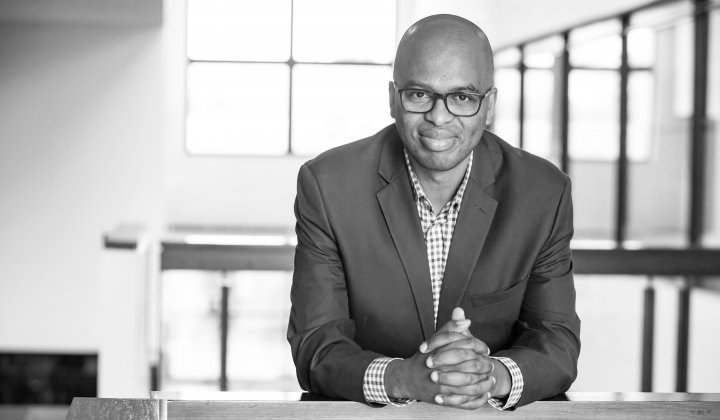Women excelling in the financial and technology space include the likes of GIBS alumna Raisibe Morathi, Group CFO at Vodacom and previously Group CFO at Nedbank, as well as Yolanda Cuba, group vice president for MTN’s Southern and East Africa markets and formerly a group executive at Vodacom and CEO of Vodafone Ghana. Notably, the elevation of both Morathi and Cuba is not the exception within the telecoms sector.
Vodacom is illustrating the art of the possible through the likes of GIBS alumna Takalani Netshitenzhe (chief officer: Vodacom SA external affairs director), Njabulo Mashigo (executive director: HR) and Mariam Cassim (CEO for financial and digital services at Vodacom) as the group challenges the traditional status quo. According to Vodacom’s chief human resources officer, Matimba Mbungela, as Vodacom’s gender diversity at ExCo level reaches the critical 50% mark, more “more open-mindedness” is being injected into top management.
Likewise, MTN demonstrates its commitment to gender diversity at the top through senior appointments like the new CEOs for its operations in Uganda, Rwanda and Cameroon: Sylvia Mulinge, Mapula Bodibe and Mitwa Kaemba Ng’ambi. In the traditional financial sector, Standard Bank recently named Margaret Nienaber as the new chief operating officer, while Emrie Brown will take over as CEO of RMB in October. And we note that Keabetswe Pheko-Moshagane, MD of Absa Bank Botswana, marries her passion for technology with a focus on education and the empowerment of women. Further afield but still part of the African banking ecosystem, Ruth Leas is flying the flag in London as the CEO of Investec Bank Plc.
It is easy to celebrate these women because they are so visible. Indeed, much is written about female representation on boards and in the C-suites, but as progress is made in this area of transformation, more stories will emerge. Women remain chronically under-represented and excluded in key decision-making forums that are driving the financial and technology interface. This is despite countless commentators regularly delving into the challenges of dealing with ongoing gender inequality and the need to create a pipeline of senior women managers. The latter is something GIBS has paid particular attention to in the past, with the Goldman Sachs 10,000 Women Programme highlighting our success in working with businesses worldwide to create mentorship opportunities for women leaders in Africa.
However, working with emerging female executives is just one side of this coin. More recently, GIBS turned its attention to providing support platforms and practical guidance for women business owners. A particular favourite is the women in agriculture programme, which is run in conjunction with Corteva Agriscience as part of the GIBS Entrepreneurship Development Academy. Historically, GIBS has also worked with women in male-dominated sectors, such as construction, working closely with the National Home Builders Registration Council to empower women in this sector to develop sustainable and profitable businesses. Given the long-term opportunities in sectors focused on infrastructure development, energy, and food transition, it is important that we all work to ensure that women are not only represented but feel a deep sense of inclusion and belonging.
In the near term, however, it is blindingly obvious that the next frontier for women entrepreneurs is fintech. We must ask, though: is enough being done to support women in this dynamic and fast-moving sector?
A byte-sized fraction
A recent article in Quartz Africa, drawing on an analysis of deals in the African start-up space between 2019 and 2021 by Africa: The Big Deal, showed that women ‘techpreneurs’ in Africa are attracting higher rates of financial interest in their businesses – up from US$52 million in 2019 to US$288 million at end-2021. This shows justifiable cause for celebration, but when you consider that the share of investments going to women-run fintech start-ups represented just 6.5% of the ecosystem in 2021, it becomes clearer that men still dominate the space. Reflecting on this, Quartz Africa noted that “just US$1 in every US$15 raised in the African start-up ecosystem goes to women-owned tech start-ups”. Let that sink in before you read on.
In short, women in fintech are bashing their heads against a funding wall even before they get started. This, in turn, ensures that the space remains male-dominated and that the 10x benefits associated with women-run businesses will continue to elude this thriving sector. The 10x rule talks to a new way of working, a transformation from the work-until-you-drop mentality of old and embracing a team-orientated, win-win approach that seeks to make a difference in the lives of workers, managers, and society at large. In a society battling continued inequality and a dearth of decent job opportunities for all – especially the youth – there are profound reasons why helping women techpreneurs thrive is good for society.
Without taking anything away from the men operating in this space, we cannot afford to lose sight of what the World Economic Forum argues: that women are generally more focused on things that matter – family and community. When given scope to thrive, this outlook has ripple effects within society, meaning that if it is really impact and sustainability we are after, we should be paying closer attention to supporting the longevity and success of women-owned fintech solutions.
Banking on high-potential talent
This is not a case of propping up one segment of society to the exclusion of another. Rather, it is an approach that considers and backs potential.
We are often told that young women are consistently the smartest demographic at school and university levels, yet men continue to make up the highest demographic in the business community. Obviously, myriad social issues and demands in play contribute to this statistic. Still, it would be foolhardy of any society to continuously disregard the advancement and potential of the young people who are, arguably, among society’s smartest. At a minimum, women should be overrepresented.
If we consider the growing list of tech and corporate entrepreneurs in South Africa and greater Africa who just happen to be women, several names spring to mind: Phuthi Mahanyele-Dabengwa, South African CEO of global internet group Naspers, epitomises both entrepreneurial excellence and corporate entrepreneurship, while the highly acclaimed GIBS alumna Stacey Brewer, the CEO of SPARK Schools, created an education space built on technology and a drive to make the most of limited resources.
When the impact women continue to make on our continent’s growth and development is considered, it is not hard to build a business case because driving entrepreneurship should be built on intellectual capital. In Africa’s women, we have this resource in abundance, with women making up more than 50% of the continent’s population.
The US$1 billion Gender Fund, backed by philanthropists Melinda French Gates and MacKenzie Scott, is just one recent indication that the world is waking up to the impact that supporting women has on social development. According to Bloomberg, “The new instrument vehicle will provide large, long-term and flexible funding to predominantly women-led and locally-rooted organisations.” Africa needs more funding initiatives of this ilk.
In the past, detractors of initiatives such as these have focused on the stressors on women to fulfil social roles at the expense of their personal aspirations. Covid-19 has set the cat among the pigeons, giving us the valuable opportunity to support considered, flexible work arrangements that enable business models that are more friendly to women (and men) and create entry pathways that celebrate human-centric and flexible business approaches.



